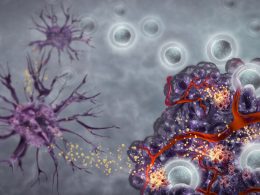Welcome to the ultimate guide on alcohol and its hidden consequences! You might think that enjoying a glass of wine or beer occasionally won’t harm you, but did you know that even minimal alcohol intake can have detrimental effects on your brain, liver, and overall health? In this blog post, we’ll dive deep into the science behind these hidden consequences and reveal how they can be avoided. So grab your favorite non-alcoholic beverage and let’s explore the sobering truth about drinking!
Brain Fog
Brain fog is a common symptom of liver damage. It can be hard to focus and think clearly when your liver is not functioning properly. Alcohol consumption, even in small amounts, can lead to liver damage and brain fog. If you are experiencing brain fog, it is important to talk to your doctor about your alcohol consumption and whether it could be contributing to your symptoms.
Liver Damage
Liver damage is one of the hidden consequences of minimal alcohol intake. Many people don’t realize that even moderate drinking can cause liver damage. The liver is a very important organ, and it’s responsible for filtering toxins out of your body. When you drink alcohol, it overloads the liver and prevents it from doing its job properly. This can lead to a build-up of toxins in your body, which can eventually lead to liver damage.
There are a few different types of liver damage that can occur from drinking alcohol. The most common type is fatty liver disease, which is when fat accumulates in the liver. This can eventually lead to cirrhosis, which is when the liver becomes scarred and doesn’t function properly. Alcoholic hepatitis is another type of liver damage that can occur, which is when the liver becomes inflamed. This can also eventually lead to cirrhosis.
If you drink alcohol regularly, it’s important to be aware of the signs and symptoms of liver damage. Some common symptoms include fatigue, weight loss, yellowing of the skin and eyes (jaundice), dark urine, nausea and vomiting, abdominal pain, and bruises or bleeding easily. If you experience any of these symptoms, it’s important to see a doctor right away so they can rule out other potential causes and determine if you have Liver Damage.
If you do have Liver Damage, there are treatment options available.
Pancreatitis
Pancreatitis is a serious and potentially life-threatening inflammation of the pancreas. The pancreas is a small organ located behind the stomach that produces enzymes that help the body break down food. Pancreatitis can occur suddenly (acute pancreatitis) or gradually (chronic pancreatitis).
Acute pancreatitis usually occurs after a heavy meal or drinking alcohol. It can also be caused by certain medications, such as steroids, thiazide diuretics, estrogens, and protease inhibitors. Chronic pancreatitis is usually caused by long-term alcohol abuse.
Symptoms of acute pancreatitis include severe abdominal pain that radiates to the back, nausea and vomiting, fever, rapid heartbeat, and increased white blood cell count. Symptoms of chronic pancreatitis include weight loss, malabsorption of nutrients, diabetes, and chronic pain.
Pancreatitis is diagnosed through blood tests, CT scan, or MRI. Treatment for acute pancreatitis includes rest, IV fluids, pain relief medication, and antibiotics if there is an infection. Treatment for chronic pancreatitis includes abstinence from alcohol, nutritional support, pain relief medication, and enzyme replacement therapy.
Cardiomyopathy
Cardiomyopathy is a condition in which the heart muscle weakens and doesn’t work as well as it should. The heart becomes enlarged and can’t pump blood efficiently. Cardiomyopathy can lead to heart failure.
There are many types of cardiomyopathy, but the most common is alcoholic cardiomyopathy, which is caused by chronic alcohol abuse. Alcoholic cardiomyopathy typically develops after years of heavy drinking. It’s characterized by a thickening of the heart muscle, which makes it harder for the heart to pump blood. The condition can lead to heart failure and death.
If you drink alcohol regularly, even in small amounts, you’re at risk for developing alcoholic cardiomyopathy. If you have this condition, you may not have any symptoms until the damage to your heart is severe. That’s why it’s important to see your doctor regularly and get checked for this condition if you drink alcohol frequently.
Cancer
Cancer is one of the leading causes of death worldwide, and alcohol consumption is a major risk factor for developing cancer. Even moderate alcohol consumption can increase the risk of developing cancer of the mouth, esophagus, pharynx, larynx, liver, and breast.
While the link between alcohol and cancer has been known for many years, recent studies have shown that even minimal alcohol intake can increase the risk of developing cancer. In fact, even just one drink per day can increase the risk of developing cancer by up to 5%.
So why is alcohol such a potent carcinogen? Alcohol is metabolized in the body into acetaldehyde, which is a known carcinogen. Acetaldehyde damages DNA and promotes tumor growth. Additionally, alcohol increases estrogen levels in the body, which can also contribute to the development of breast cancer.
If you’re concerned about your risk of developing cancer, it’s important to be mindful of your alcohol intake. Even moderate drinking can put you at an increased risk for developing cancer. If you choose to drink alcoholic beverages, do so in moderation and be sure to monitor your intake carefully.
Fetal Alcohol Spectrum Disorder
Fetal Alcohol Spectrum Disorder (FASD) is a range of birth defects that can occur when a pregnant woman drinks alcohol. FASD is the leading known cause of preventable mental retardation and birth defects in the United States.
There are three types of FASD:
1. Fetal Alcohol Syndrome (FAS): This is the most severe form of the disorder, and occurs when a pregnant woman drinks heavily or regularly over the course of her pregnancy. Children with FAS often have physical abnormalities, such as small stature, facial deformities, and heart defects. They also tend to have cognitive and behavioral problems, including difficulties with learning, memory, and attention span.
2. Partial Fetal Alcohol Syndrome (pFAS): This form of FASD occurs when a pregnant woman drinks alcohol occasionally or in small amounts over the course of her pregnancy. Children with pFAS may have some but not all of the physical abnormalities associated with FAS, as well as cognitive and behavioral problems.
3. Alcohol-Related Neurodevelopmental Disorder (ARND): This form of FASD occurs when a pregnant woman drinks alcohol during pregnancy but does not show any visible signs of physical abnormalities. However, children with ARND may still experience cognitive and behavioral problems, such as difficulty paying attention or controlling impulses.
No matter which type of FASD a child has, it is important to get early diagnosis and treatment to improve their
Conclusion
As this article has explored, there are many hidden consequences of minimal alcohol intake, from brain fog and memory loss to liver damage. While occasional drinking is generally not harmful in moderation, regular or excessive drinking can cause serious health issues that can last long after the effects of the alcohol have worn off. Therefore, it is important to take caution when consuming alcoholic drinks and limit one’s consumption as much as possible for longer-term health benefits.










